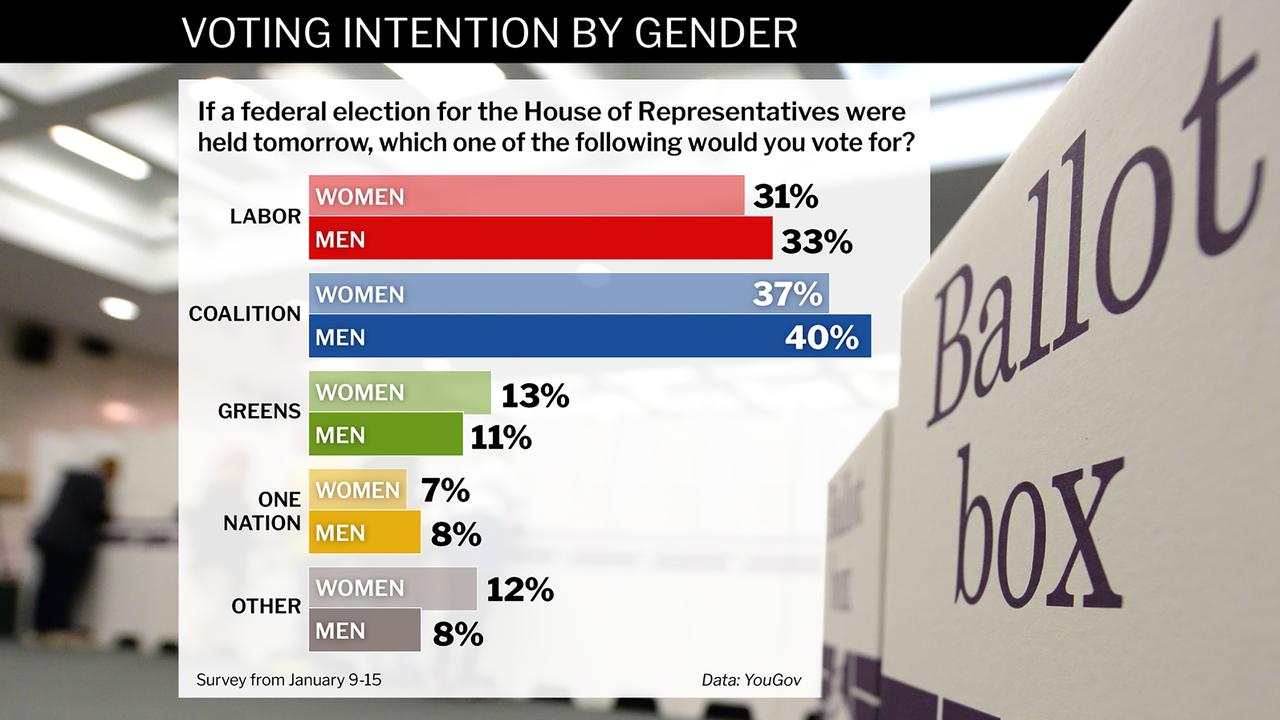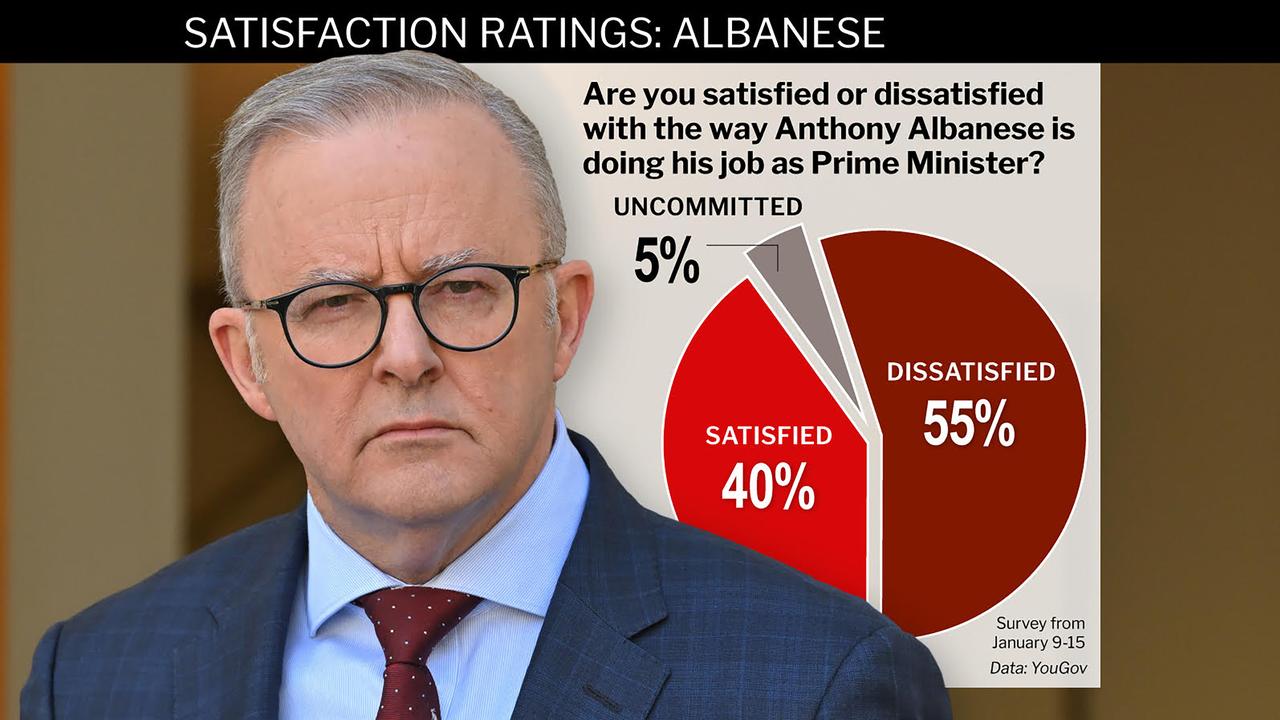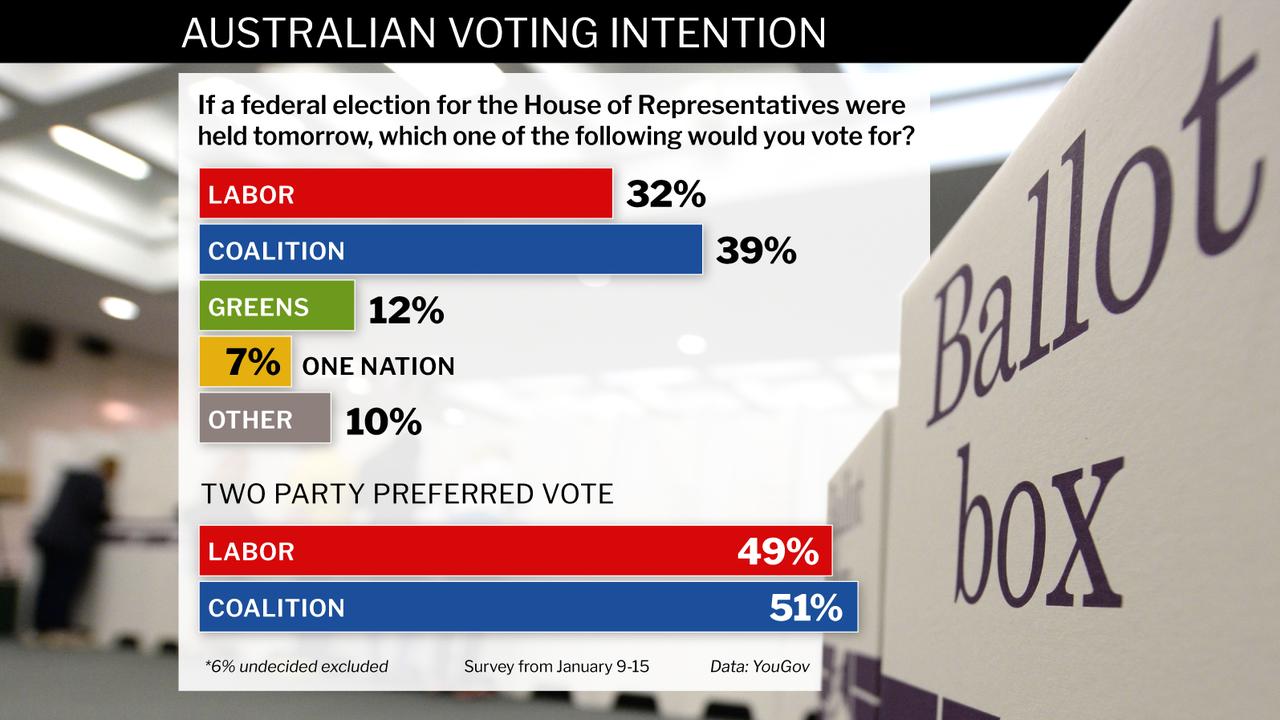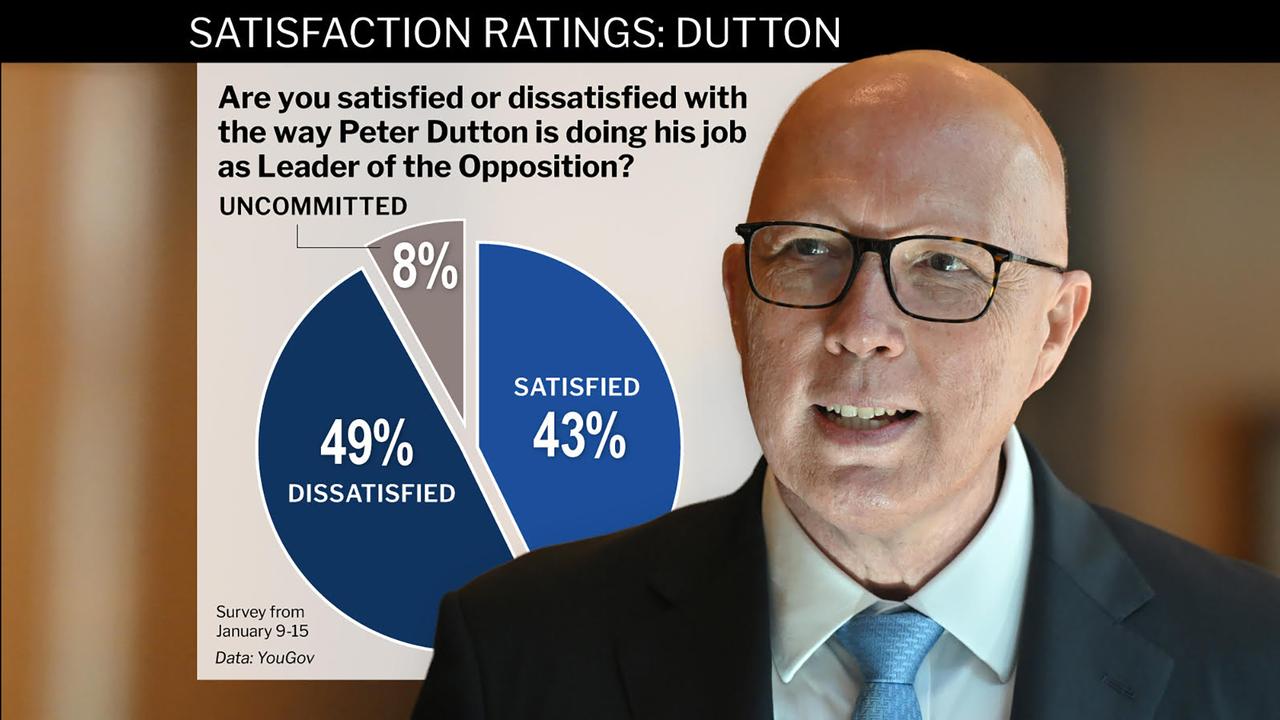
Anthony Albanese may be the first prime minister to have an equal number of women in his cabinet, but the prime minister might need to win over more female voters to have a shot at a second term.
The latest poll from YouGov, provided to AAP, showed the coalition ahead of the government in terms of support from women, reversing a trend from the 2022 election when the Liberals were booted from office.
The poll showed 37 per cent of women surveyed backed the coalition in their primary vote, compared with 31 per cent for Labor.

Comparatively, 40 per cent of men would be likely to vote for the Liberals and Nationals, compared with 33 per cent for the government.
But female voters were more likely to say Mr Albanese would make the better prime minister compared to Peter Dutton, with the Labor leader ahead 42 per cent to 37 per cent on the metric among women.
It was a tie between men as to who of the two major party leaders would make the best prime minister, on 44 per cent.
Federal cabinet reached gender parity for the first time on Monday, following the swearing in of ministers.
With Amanda Rishworth, Katy Gallagher and Anne Aly taking on new portfolios after the retirement of Bill Shorten, along with the elevation of Anika Wells to the cabinet, there are 11 men and 11 women as ministers.

“(It’s) the first time in Australian history, since federation, that we’ve had equal representation in the cabinet of the government of Australia,” Mr Albanese said at the swearing-in ceremony on Monday.
At the last federal election, 36 per cent of women backed Labor, compared to 32 per cent for the coalition, according to the 2022 Australian Election Study.
A large numbers of women took their vote away from the coalition at the 2022 election, leading to the rise of teal independents in many inner-city electorates.
While the coalition under Mr Dutton has come under fire for pre-selecting men in safe seats, the party has chosen women to run against teal candidates in former blue-ribbon seats.

Among them was tech executive Gisele Kapterian, who was chosen on Saturday to run in Bradfield in Sydney’s north to fend off a challenge from independent Nicolette Boele.
Polling from YouGov showed women were more pessimistic about their economic outlook compared to men in the lead up to the election.
It found 64 per cent of women surveyed said they were barely getting by or going backwards, while 36 per cent said their financial situation was improving.
That was compared to 58 per cent of men saying their finances were getting worse while 42 per cent were positive about their economic concerns.

YouGov’s director of polling Amir Daftari said voters’ financial situation would be a critical factor at the ballot box.
“There is little to no ideological contest in this election and people may vote the current government out simply to see if it improves their situation,” he told AAP.
The next federal election is due to be held by mid-May at the latest, with the YouGov poll showing a slight lead for the coalition at 51 per cent to 49 per cent among all voters on a two-party preferred basis.






